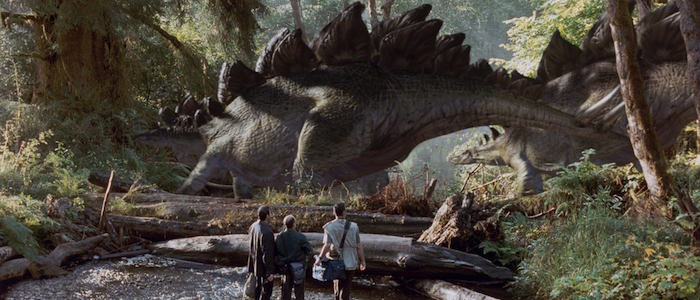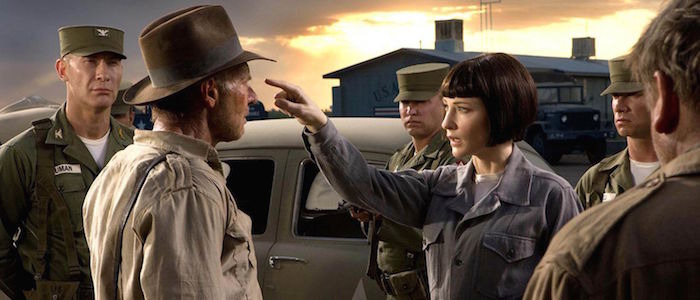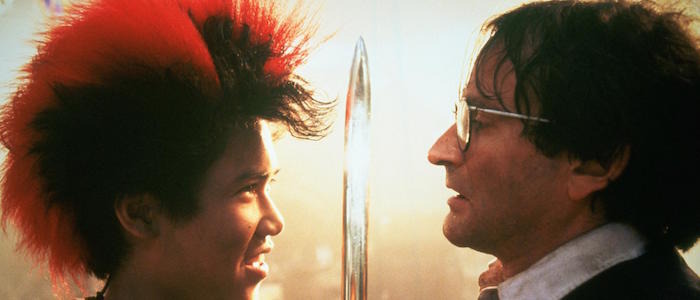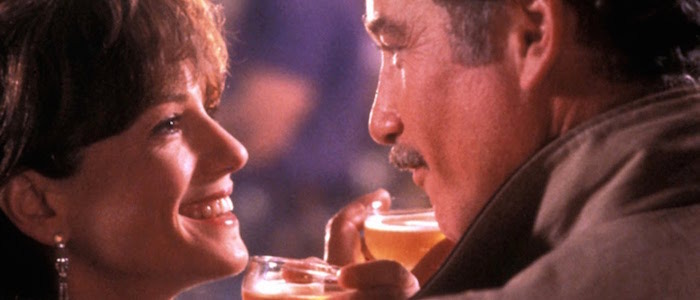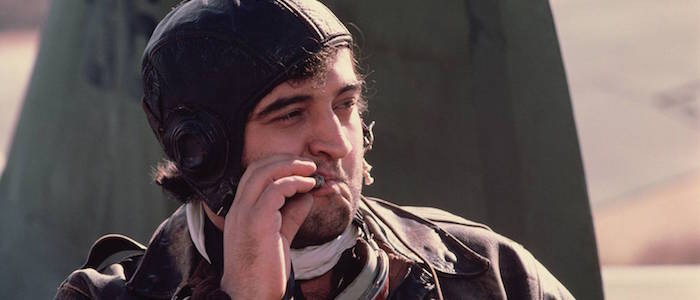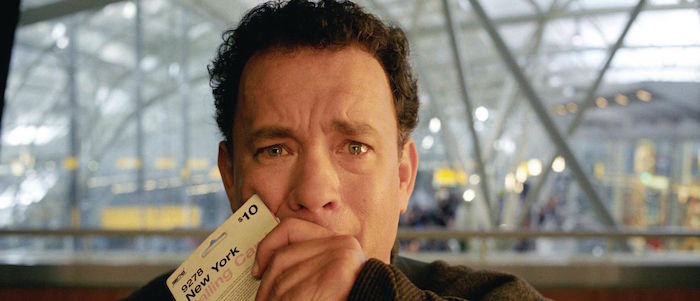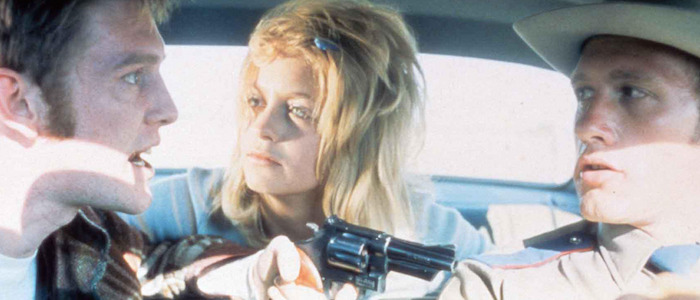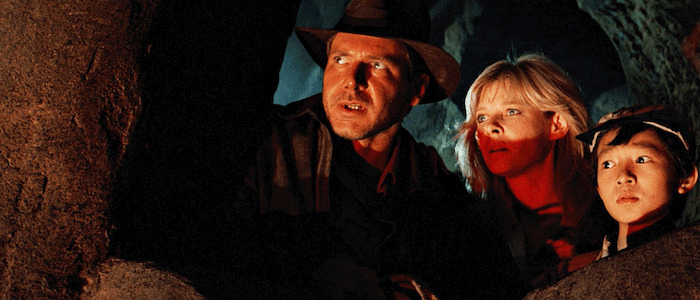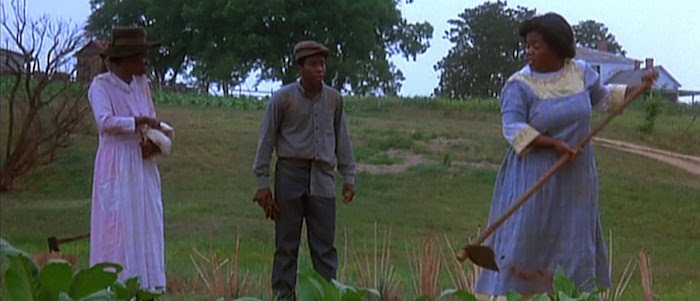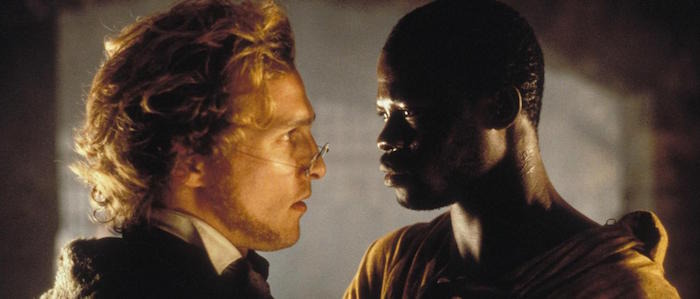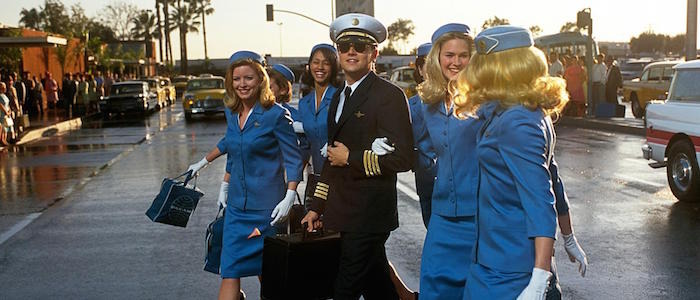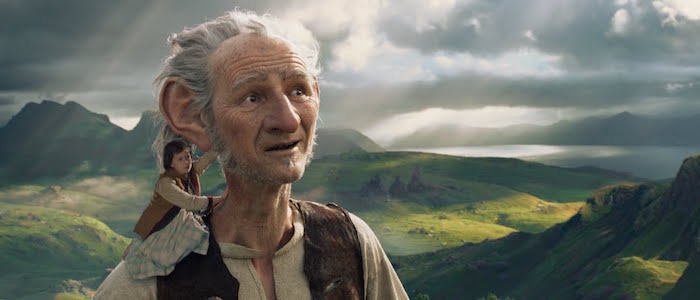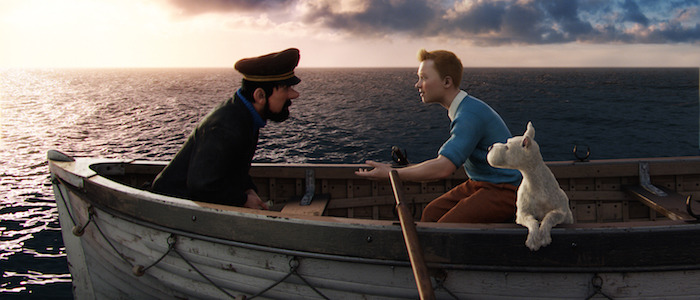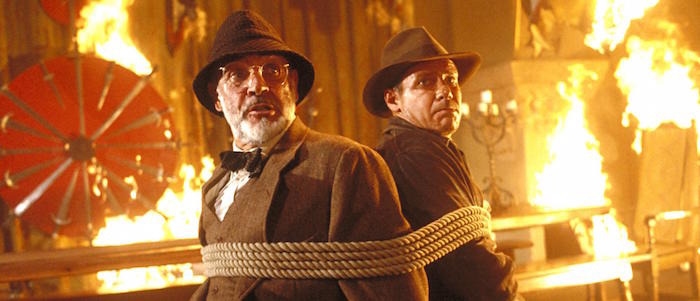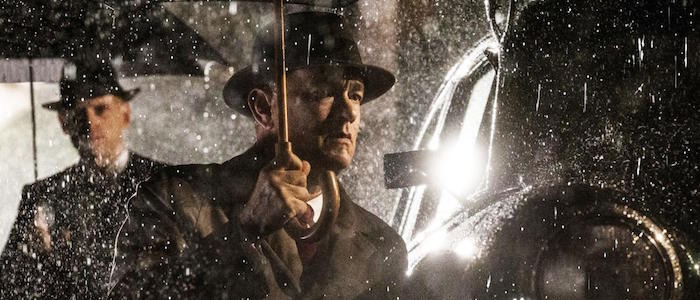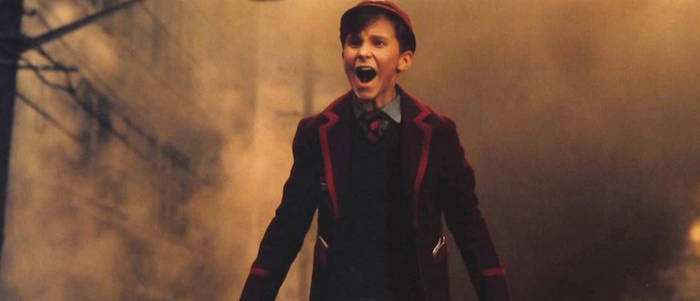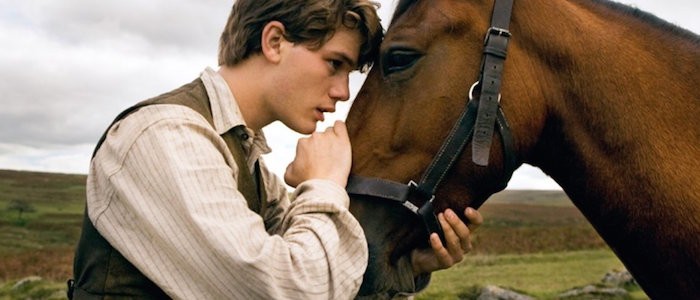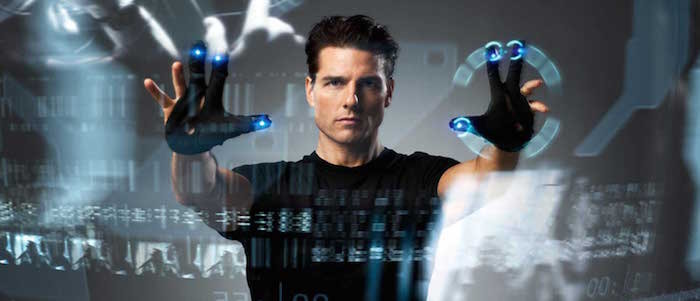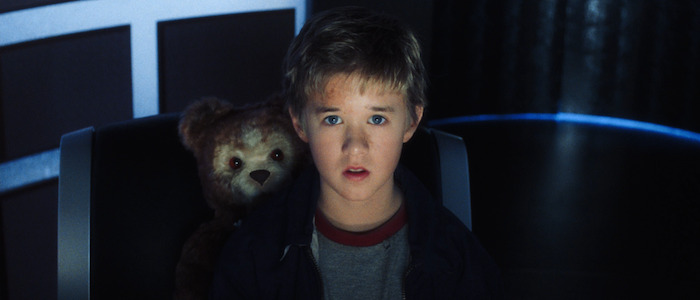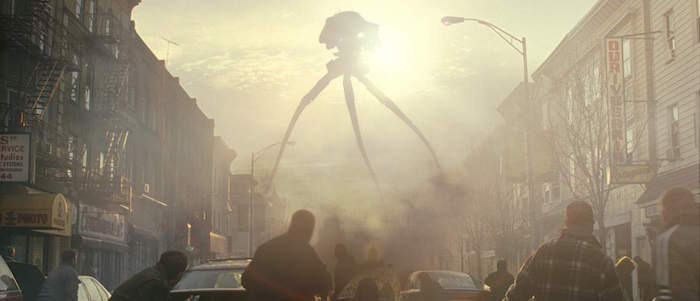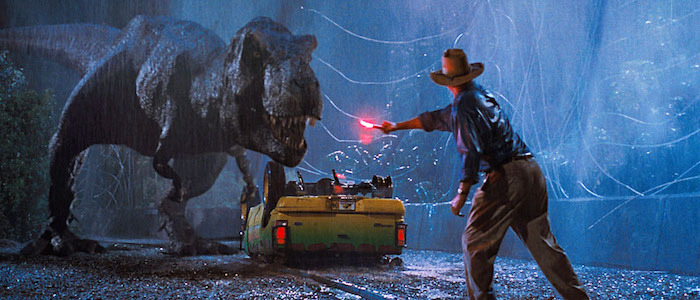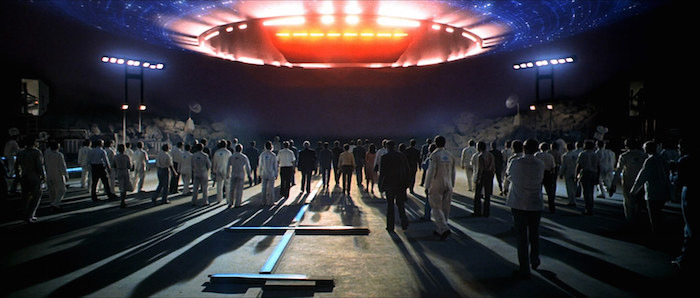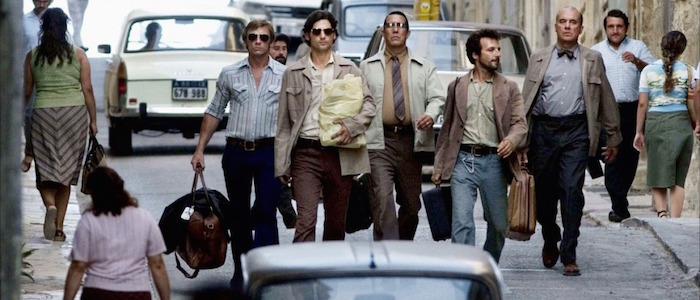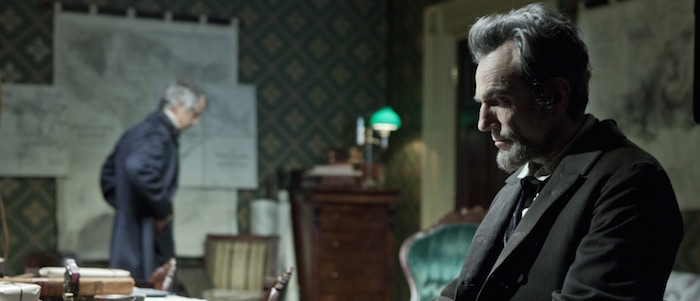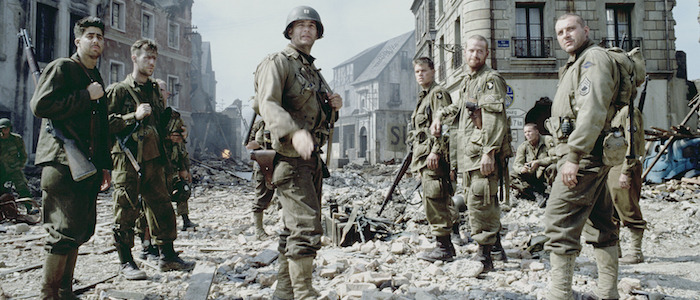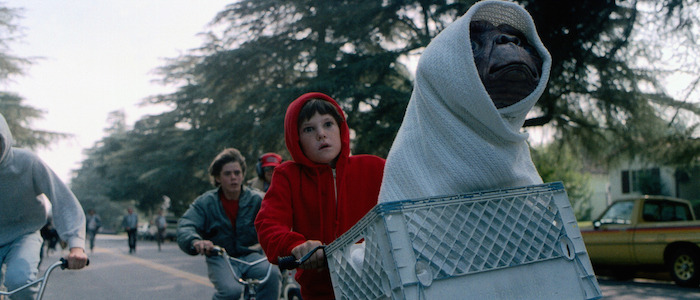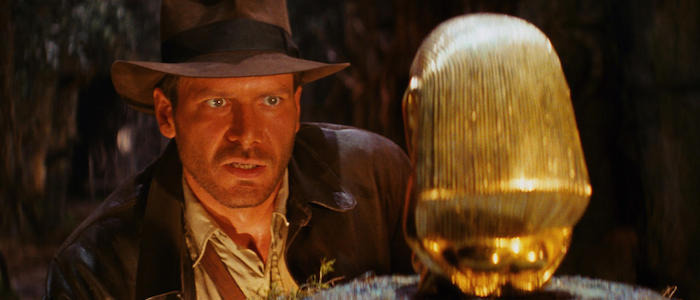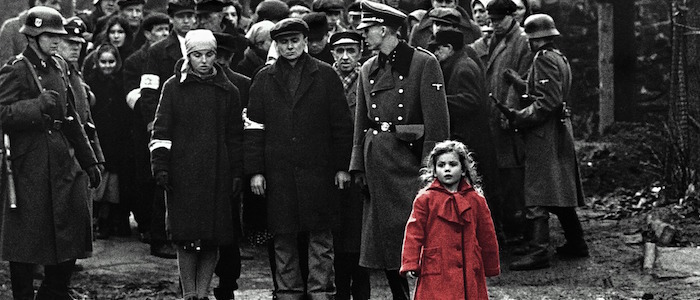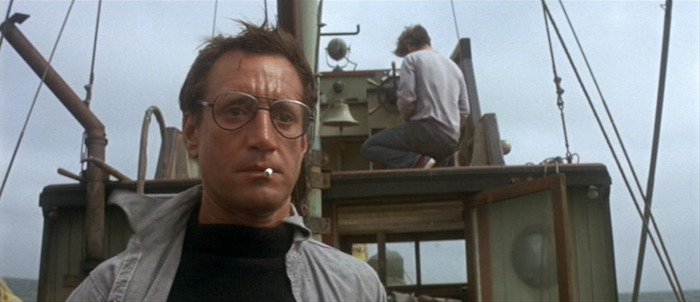The Dreamer, The Historian, And The Kid: Ranking The Films Of Steven Spielberg
I had no intention of writing a Steven Spielberg ranking until too many people started dismissing The BFG as the film disappointed at the box office. After all, I approach Mr. Spielberg with the respect and devotion a churchgoer has for a saint – there are few cinematic storytellers I value more. So watching the internet erupt in headlines about whether or not Spielberg was over felt like blasphemy. Of course he's not over. The man who made made Jaws and Raiders of the Lost Ark will never be over. Like every other director, he will have his peaks and valleys...and if The BFG is a valley, then his low points dwarf the work of most filmmakers.
This is the internet, so you know the drill. I'm going to rank Spielberg's theatrically released (sorry, Duel) films. You can then argue about them in the manner you see fit.
29. The Lost World: Jurassic Park (1997)
Most of Steven Spielberg's lesser movies contain great scenes amidst clunky stories, moments of stunning inspiration that lurch out and grab your attention when you've written everything else off. The Lost World: Jurassic Park contains precious little of that. This is a tired sequel made by a masterful filmmaker whose brain seems to be occupied elsewhere and everything about this movie feels like it was fueled by obligation rather than passion. That's a common sight in Hollywood, but very rare and very disappointing, for a Spielberg movie.
28. Indiana Jones and the Kingdom of the Crystal Skull (2008)
Spielberg's disinterest in making a fourth Indiana Jones movie is palpable, making it a dreary companion piece to The Lost World and one of the most disappointing major releases of all time. However, Indiana Jones and the Kingdom of the Crustal Skull is too weird to be completely ignored and its truly strange and inexplicable decisions inspire more conversation and debate than his Jurassic Park sequel. For that reason alone, it cannot be ranked last...it gets second-to-last.
27. Hook (1991)
It's easy to see how Hook felt honest and pure on paper, an exploration of the joys of childhood explored by a filmmaker who has always been in touch with his inner kid. In execution, this update on the Peter Pan mythos is gorgeous nonsense, shrill and obnoxious and filled with characters who are either walking cartoons or paper-thin caricatures. There is plenty of Spielberg's soul on display here and there is an alternate dimension where he was the perfect man to take on this story, but all of his worst habits as a filmmaker are standing at the forefront.
26. Always (1989)
As good as Spielberg is at tapping into wonder and awe and the terrifying/amazing emotions that go hand-in-hand with being a child, he's always been a little rusty when it comes to creating romance on screen. Always is the only one of his movies that purely relies on romance as a driving story factor and the whole thing falls flat. He is obviously more comfortable with the more fantastical elements of this story, which only ultimately serve as a distraction from what really matters.
25. 1941 (1979)
It's easy to see why 1941 has a strong cult following these days – it's ambitious and weird and filled with funny people doing very silly work. However, Spielberg has always been better at sprinkling comedy into larger narratives than making it the focus of an entire movie. Raiders of the Lost Ark is funnier than 1941. Lincoln is funnier than 1941. When humor informs the characters and story, Spielberg can direct is masterfully. When it is front and center, he loses his grip on the tale he is trying to tell.
24. The Terminal (2004)
Like many of Spielberg's lesser movies, The Terminal is about as well-intentioned as they come, but the results are treacly rather than sweet. His ongoing struggle throughout his entire filmography is just how much of his trademark sentimentality he'll allow to rule every story he tells and this is an example where he leans a little too hard on it, taking a great high concept premise (Tom Hanks is trapped in an airport indefinitely for political reasons) and doing shockingly little with it beyond pushing the earnestness up to eleven. It's a noble effort, albeit one that doesn't quite come together.
23. The Sugarland Express (1974)
If Jaws represented Steven Spielberg effectively ending the era of the Hollywood auteur that began a decade earlier, The Sugarland Express represents him standing with one foot in two very different worlds. This is a film that shares DNA with the counterculture films of the late '60s and early '70s while also showcasing the populist sensibilities that would made Spielberg's movies a box office sensation in the years to come. It is a fine first feature and vital viewing to understand his evolution as a filmmaker, even if it feels slight in his larger filmography.
22. Indiana Jones and the Temple of Doom (1984)
Both Spielberg and producer George Lucas have offered plenty of excuses over the years for why Indiana Jones and the Temple of Doom is what it is but that doesn't excuse the fact that they made one of the nastiest, ugliest and most mean-spiritied blockbusters of all time. This is a movie fascinated with the grotesque, a sequel that takes all of that Raiders of the Lost Ark goodwill and uses it as fuel to force the audience to endure scenes of torture and brutal violence and overtly silly (and slightly racist) comedy. This is Spielberg at his most adolescent, an 11-year old practical joker in a man's body, and the results are uneven...even if they're wildly entertaining in spite of everything.
21. The Color Purple (1985)
Spielberg's first "grown-up" movie is more famous today for failing to win a trophy for any of its 11 Oscar nominations than it is for anything else, which is a shame. While not as assuredly directed his later dramatic work, The Color Purple finds a populist filmmaker stepping out of his comfort zone and dealing with difficult material with deft and natural skill. It's not a subtle or nuanced movie and movie fans have argued for decades over whether or not Spielberg was ever the right guy to make on this story, but it's a finely made, finely acted, and beautifully produced movie whose heart is in the right place in every single scene.
20. Amistad (1997)
At its worst, Amistad feels like a dry history lecture. At is best, Amistad is an occasionally remarkable and entertaining history lecture that dramatizes a fascinating story that will be news to most viewers. As with Spielberg's other history movies, he approaches the material with respect and reverence, but unlike with Lincoln, he often has a hard time transforming the narrative into something propulsive and, well, fun. Instead, Amistad is handsomely produced homework, but it's the kind of homework that you're glad you actually sat down and worked through.
19. Catch Me If You Can (2002)
Light and breezy and seemingly effortless, Catch Me If You Can is the kind of entertaining trifle that requires a master to pull off. The film is far too long and loses its way in the homestretch, but for a good 110 minutes or so, you feel like you could watch Leonardo DiCaprio scam his way across America (while Tom Hanks gives chase) all day. And while the focus here is on creating something fun and frothy that goes down real smooth, Spielberg punctuates the fun with emotional beats that stab like an ice pick. It's all fun and games until Christopher Walken shows up to break your heart.
18. The BFG (2016)
If anyone else had made The BFG, people would be talking about what a charming and warm and imaginative movie it is. They'd be talking about how Mark Rylance's title character is an incredible combination of acting and visual effects. They'd be talking about how young Ruby Barnhill holds her own against the masterful Rylance, delivering one of the better child performances in recent years. They'd be talking about how the film depicts scale in ways both terrifying and humorous, with humans, small giants, and large giants all offering different perspectives. And yes, maybe they'd be talking about the greatest fart joke ever put on screen. Seriously. But The BFG is only minor Spielberg, so it gets discarded for now. But minor Spielberg is everyone else's masterpiece.
17. The Adventures of Tintin (2011)
Unlike James Cameron, Robert Zemeckis, or Peter Jackson, Steven Spielberg isn't known for pushing cinematic technology forward with every production. However, he does have a knack for taking the advances that others has worked out and making them sing. The Adventures of Tintin is far from being the first feature length motion capture animation movie, but it is almost certainly the best. The film is stunning from a technical standpoint, leaping over the uncanny valley that has defeated so many previous productions with its exaggerated character designs and colorful, detailed world. But more importantly, Spielberg uses the infinite powers of animation within reason. When he does break the laws of psychics or when he does something with his digital camera that could never be accomplished in an actual production, you barely notice. You only notice that his camera is always in the right place, that his characters are instantly lovable, and that the story keeps on finding new and interesting directions.
16. Indiana Jones and the Last Crusade (1989)
If we're talking about a pure good time at the movies, Indiana Jones and the Last Crusade is a work of near-perfection. The movie flies from frame one and if it's not indulging in a bombastic set piece, it's allowing its characters to bounce off each other in hilarious and thrilling ways. Here is a film in constant motion, where each scene pulls you into the next one with so much force that you surrender yourself to the ride. This is the kind of movie where Sean Connery plays Harrison Ford's father because Spielberg obviously realizes how much fun that will be to watch. Quite frankly, this is a piece of entertainment from a director who has mastered making a purely entertaining experience feel effortless by this point in the career. There is no meat here, no nutrients, but why point that out when you can praise a fine dessert?
15. Bridge of Spies (2015)
The running joke I've heard concerning Bridge of Spies is that it is one of the greatest "dad movies" ever made and that's okay! Even dads need entertainment now and again. Still, placing it under that umbrella ignores what it does so well. This is an espionage movie free of gun battles and action scenes, where the focus is placed entirely on diplomacy and conversation. Words are weapons. Bureaucracy is a battleground. A misspoken sentence can mean life or death. Mark Rylance won a well-deserved Oscar for his work here, but Spielberg utilizes Tom Hanks perfectly in the starring role, directing him in a performance that feels like it would make Gregory Peck or James Stewart envious from beyond the grave. This is a detailed and nuanced thriller that demands your rapt attention. It refuses to turn away from darkness. It earns the splash of sentiment Spielberg splashes over the final scenes.
14. Empire of the Sun (1987)
Every kid eventually grows up and that includes Steven Spielberg. Although Empire of the Sun wasn't his first attempt to stray away from the blockbusters that defined his early career, it is the first time he feels truly comfortable operating in these kinds of waters. Before the film gives way to its happy (if painfully bittersweet) ending, Spielberg takes us on a sometimes agonizing death march. We witness the slow and painful demise of a childhood firsthand. And that seems to be Spielberg's "in" with this film. Here is a filmmaker so innately aware of how children think a feel, a storyteller that can connect to the inner kid of every viewer, exploring what it means to have your youth torn away from you. In a young Christian Bale, Spielberg discovered one of his best young actors and the results are brutal. No one understands the importance of being a kid quite like Spielberg, so this feels like a vital transition for him as an artist. He was never going to make movies like Schindler's List, Saving Private Ryan, and Bridge of Spies unless he made this first.
13. War Horse (2011)
War Horse is Spielberg at his most sentimental, but his natural optimism is a key ingredient in a movie that is otherwise full of darkness and despair. More of a collection of interrelated short stories than a single narrative, the film follows a single horse as it changes hands throughout World War I, offering perspectives on the conflict from soldiers and civilians from every side of the conflict. What should feel episodic ends up feeling as thematically unified as anything Spielberg has ever made. Cruelty and kindness, bravery and cowardice, conflict and cooperation...all are examined as two halves of the same coin, with mankind capable of displaying both at any given moment. The horse of the title is our unbiased tour guide through the ups and downs of humanity, the innocent subjected to the highs and lows of mankind. War Horse is unrelenting and even Spielberg's dashes of sentiment only offer temporary respite from grief and pain. Spielberg still believes in people, even if he doesn't like them very much.
12. Minority Report (2002)
So many science fiction films aim to create a believable future, but the world of Minority Report feels more prescient than almost any other we have seen on screen. To watch this movie now is to see the most fantastic advances of the past decade fully realized years before they came to pass. There's something powerful and fascinating about that. However, there's more to Minority Report than its stunning world. Although it was made in 2002, Spielberg has crafted a film that feels a kinship with the sci-fi of the '70s, a companion piece to thoughtful movies like Logan's Run and Silent Running. This is a genre film that bombards the viewers with ideas, using its fantastical setting to raise questions about the reach of law enforcement and the ethics of surveillance. And since this is a Spielberg movie, he makes sure that we're riding roller coster between every intriguing query.
11. A.I. Artificial Intelligence (2001)
Many film fans know the story by now: A.I. Artificial Intelligence was originally a Stanley Kubrick project and you can still feel his icy and pitch-black worldview lurking within the finished version's DNA. The Spielberg we usually know is present here, but not in the places you'd expect. His eye for the fantastic, how he wonders at the impossible and asks us to do the same, is evident in every frame. And yet, Spielberg's trademark optimism is all-but-absent here and the results are startling. This is, somehow, the darkest movie Spielberg has ever made because he dodges hope at every turn. Even the ending, which feels like a sappy conclusion, is deeply troubling and tragic when you ponder it for more than a moment. In many ways, A.I. Artificial Intelligence is the anti-E.T., the movie where families do not rally together and children are forgotten and journeys of self-discovery conclude with disillusionment and pain. It's the only companion piece for Munich in Spielberg's filmography – one of the only movies where he cannot see the light through the abyss.
10. War of the Worlds (2005)
Over the years, War of the Worlds has not only emerged as Spielberg's most underrated movie, but also as one of the only major studio films to grapple with the post-9/11 world in such a direct and uncomfortable manner. This may be an alien invasion movie, but Spielberg's very specific choices are no accident. It's how Tom Cruise reacts with utter horror when he realizes he's covered in gray ash that was once people. It's how everyone, even our heroes, think of themselves before they can even consider helping another. It's in the tiny acts of bravery and kindness that are almost lost amidst the bloodshed. Don't let the scale fool you – War of the Worlds is Spielberg's first pure horror movie since Jaws and like so many great genre movies, every gruesome set piece carries weight and means something. The out-of-nowhere happy ending still ruffles feathers, but it feels like the least Spielberg can do after putting us through the wringer for the previous two hours. Of all of Spielberg's "entertainments," this is by far the most harrowing.
9. Jurassic Park (1993)
Here's what Jurassic Park knows that its sequels and imitators simply not understand: if someone brought dinosaurs back to life and let them run around a jungle island, it would be amazing. It would be astonishing. It would be the kind of thing that grabs your attention and never lets go. Your jaw will hang open. Your other problems will vanish. You will be completely overtaken by wonder. Jurassic Park is intense and fun and funny and scary and technically jaw-dropping (its early CGI still holds up today), but those thrills and chills only work because Spielberg never forgets that these impossible animals are awesome in the traditional sense of that word.
8. Close Encounters of the Third Kind (1977)
Steven Spielberg's sentiment is defined by his optimism, but that optimism is defined by his curiosity. He's not in touch with inner child because he's stunted, but because he's always questioning and always searching and always wanting to experience something new. Close Encounters of the Third Kind is a film about that curiosity, about how the unknown calls to us, and how the mysteries of the universe make everything else on Earth feel so...small. Through Spielberg's lens, mundane human things like marriage and careers pale next to the greater mysteries of the universe. What is a family compared to making first contact with an alien race? And while that sounds cynical, Spielberg shoots Close Encounters of the Third Kind with a giddiness that is downright infectious. This is the work of a man who looks to the stars and only sees an opportunity.
7. Munich (2005)
Munich arrived in the same year as War of the Worlds and it's difficult to separate the two of them once you see the connections. These two of his most cynical movies and both are obsessed with how violence begets violence, with how humanity can be dealt a blow so tragic and shattering that no one escapes unscathed. Although its set decades in the past, this is second of Spielberg's films to directly respond to the events of September 11, 2001 and it is one of the most powerful dissections of the War on Terror ever put to film. Spielberg, being the accessible filmmaker that he is, builds Munich into a tense thriller, a tale of professionals setting out to avenge their murdered countrymen and getting the job done with remarkable precision. But Spielberg fills the margins with pain and trauma. Even those who righteously cheer the early violence will have second thoughts as the film goes on and the vengeance becomes uglier, the violence more painful. Like with so many of his best movies, Spielberg lures you in with excitement before bringing the hammer down.
6. Lincoln (2012)
Spielberg is obviously enamored with President Abraham Lincoln but rather than deliver a by-the-numbers biopic with Lincoln, he chooses to focus on a few key months of his presidency, revealing how this sainted-by-history man was a crafty politician, a brilliant storyteller, and a tremendously flawed husband and father. As a portrait, this is nothing short of a masterpiece, with Daniel Day-Lewis' turning in an all-time great performance. However, the great miracle of Lincoln is that it is fun. Honest Abe sits at the center of the action, but every scene is chock-full of your favorite character actors doing incredible work, tearing into Tony Kushner's witty and powerful dialogue like their lives depended on it. For a movie that is entirely about wheeling and dealing in Congress, Lincoln is as exciting and hilarious as a traditional adventure movie. Rarely has a historical film been this energetic, relatable, and honest about the process of governing a nation.
5. Saving Private Ryan (1998)
Whether you consider Saving Private Ryan to be a masterpiece or simply a good movie often comes down to those damned bookends. In one of the most controversial choices in his career, Steven Spielberg begins and ends this World War II epic with scenes set in modern day and those scenes are cloying, insulting, and pound home the film's message until any sense of subtlety is lost. However (and that is one gigantic however), the rest of the film is undeniably powerful and deeply upsetting and quite possibly the most horrifying portrait of warfare ever put on screen. The opening Normandy Beach sequence is rightfully famous, but the film remains gripping even as it takes on a more traditional "men on a mission" format, with Tom Hanks leading a group of soldiers on an ill-fated rescue mission. This is where Saving Private Ryan truly clicks for me. By taking a story that would have been right at home in a more traditional action movie and ensuring that every gunshot rings with terror and every wound looks like it hurts, Spielberg has deflated the mere concept that war can be exciting and fun. This was a righteous war, the film argues, but it left no one untouched.
4. E.T. the Extra-Terrestrial (1982)
There is magic in E.T. the Extra-Terrestrial. That magic is in the obvious moments, like when that lovable alien takes Elliott on a moonlit flight over the forest. That magic is in the quieter moments, like how Steven Spielberg so deftly portrays a single parent household that is dysfunctional without being broken. For a movie so fantastical, for a movie that is big-hearted science fiction at its best and warmest, E.T. feels so nuanced and real and carefully considered. Great science fiction challenges the imagination, but masterful science fiction also challenges the heart. This is a masterpiece because it embeds a story about a boy and his alien in a world we recognize so very well. This is an alien movie about humanity.
3. Raiders of the Lost Ark (1981)
This is where ranking things can get a little silly, because Raiders of the Lost Ark is my favorite Steven Spielberg movie, even I can't quite justify putting it at the top of this list. I can list the accolades: this is the best piece of pure entertainment to every emerge from Hollywood, an action/adventure movie so perfect in tone and pacing that I subconsciously compare it to every other summer blockbuster to I watch. It is a high water mark in studio filmmaking and Indiana Jones is the finest action hero ever created for the screen. No movie has ever managed to find a better mix of stunning action and huge laughs and lovely character moments. To watch Raiders of the Lost Ark is to watch one of the great entertainers of all time strut his stuff and make it look easy.
2. Schindler's List (1993)
Schindler's List doesn't work because it is disturbing and brutal experience that presents the horrors of the Holocaust in the most direct manner possible. Schindler's List works because it does all of that while delivering a movie that people actually want to see. This is a three-hour journey through genuine hell and while Spielberg never shies away from sheer brutality, his storytelling is accessible, his characters likable, and the pace brisk. Schindler's List never wallows in the horror of its subject matter – it transports the audience to that horror and gives them a reason to care. And since Spielberg's gotta Spielberg, he ends the film on a hopeful note, choosing to embrace the fragments of heroism and goodness that shone through the darkness. It feels earned. After experiencing Schindler's List, Spielberg gives you permission to hope again.
1. Jaws (1975)
How does a great storyteller become a master? He must endure a trial by fire. The story of Jaws' disastrous production has been chronicled time and time again, but it is key to understanding exactly why this movie is perfect and why it forced Spielberg through his first and most important evolution as a film director. With a robotic shark that rarely worked and ships that had the bad habit of sinking, Spielberg was forced to think on his feet, to adapt, and to radically alter course and improvise new solutions. And the results are perfect. That shark that didn't work forced Spielberg to create an adversary that was a terrifying unseen presence rather than a special effect. The difficulties of shooting on water pay off when you realize just how isolated and alone our heroes look on the water. And through all of the noise, Spielberg was able to focus on what really matters: the three men who set out to kill a Great White Shark and have a terrifying adventure. Jaws is the kind of movie that makes you realize every great artist needs at least one horrible uphill battle to achieve something amazing.

